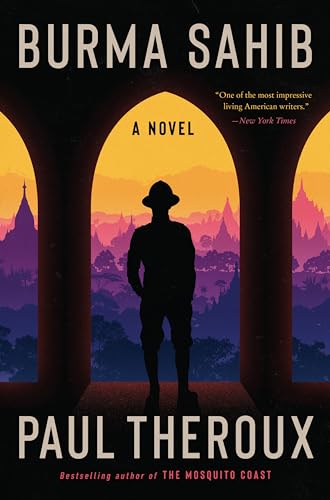Burma Sahib
In 1922, 19-year-old Eric Blair, upon graduating Eton, joined the Indian Imperial Police in Burma. It is later when his career turns to writing that he takes the pen name of George Orwell. In Burma Sahib, Theroux fictionalizes the five years Orwell spent in Burma.
Upon arriving in Burma, Orwell begins his job as a police superintendent, and the cadets under his command were Burmese and Indian. At six foot two, he awkwardly towers over everyone else. He has difficulty fitting in with his unit, always feeling like an outsider and avoiding social situations while he seeks solitude to read and write poetry – Maugham and Jack London being favorite authors. He thought E. M. Forster’s A Passage to India “sounded like touristic tosh” and convinces himself he could be a better, more honest writer about the realities of colonialism. Even with his distaste for the wrongness and futility of the Raj, he still wants to fit in with the status quo and goes to great lengths to keep secret his “half-caste relatives” living in Moulmein. He is transferred to various places in Burma – Myaungmya, Twante, Syriam, Insein, Mandalay, Rangoon, Moulmein – moving with his boxes of books, his ducks and chickens in two large baskets, and his cat. He writes numerous unsent letters to his family, “I am not cut out for this” as he details his complaints, and shame over his failures. Yet he finds pleasure in nature, the various animals he acquires, and the women that come into his life.
This is a rich and fascinating narrative of Orwell’s life during the years that influence him as a writer. Theroux’s dialog is perfection, the banter between the men authentic. He was a complex and conflicted man, and Theroux shows how his life was shaped and formed by his service in Burma.










